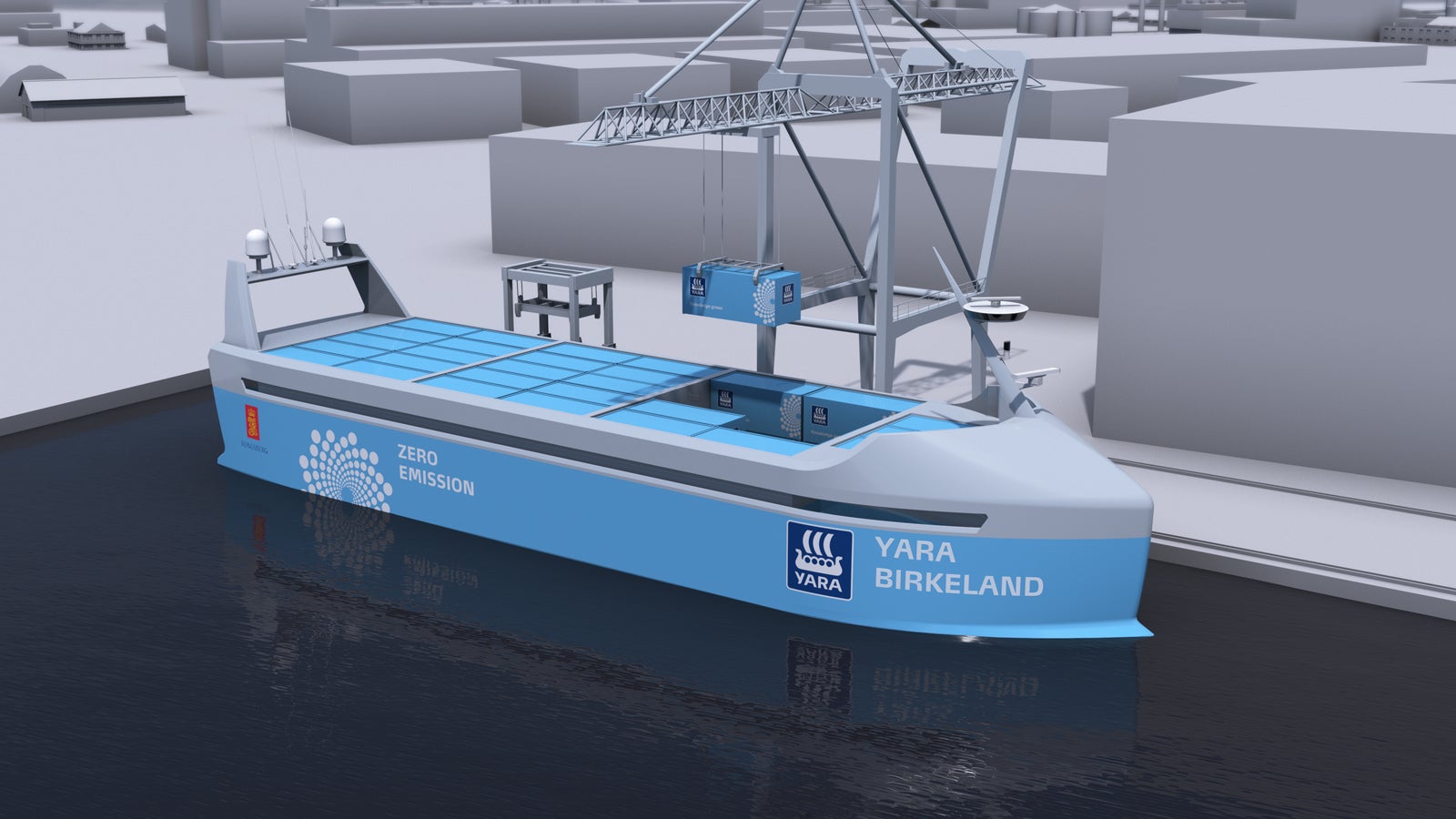A self-driving electric ship will replace thousands of truck trips at a Norwegian fertilizer firm
Norwegian chemicals group Yara announced today that it’s building a battery-powered ship that will be able to drive itself by 2020. It says the new container vessel will replace 40,000 of the diesel truck journeys it makes hauling fertilizer from its plant to ports every year.


Norwegian chemicals group Yara announced today that it’s building a battery-powered ship that will be able to drive itself by 2020. It says the new container vessel will replace 40,000 of the diesel truck journeys it makes hauling fertilizer from its plant to ports every year.
The new ship, named the Yara Birkeland, is a zero-emissions vehicle developed with shipping technology company Kongsberg. The ship will begin operations as a manned vessel next year, move to remote operation in 2019, and be capable of fully autonomous travel in 2020.
All sorts of self-driving vehicles are popping up in global cargo supply chains. In Singapore, autonomous trucks haul containers between terminals at one of the world’s busiest ports. In Europe, a continent-wide project is underway to introduce self-driving trucks that will haul cargo from ports across land borders. Rolls-Royce is also working on what it calls “intelligent ships” that will hit the water by the end of the decade.
Autonomous ships minimize piracy risks by putting fewer lives in danger at sea. Shipping goods by sea also generally emits less carbon compared with road and air routes—Yara’s electric vessel will cut freight emissions even further. Increasingly sophisticated freight technology also opens up the logistics sector to new players: Chief among them are mega-retailers like Amazon, which is devising ways to control all aspects of how its packages get delivered.
Correction: A previous version of this story said the ship would transport ammonia and other chemicals.